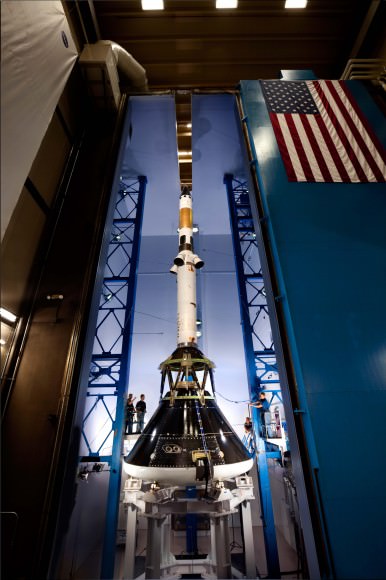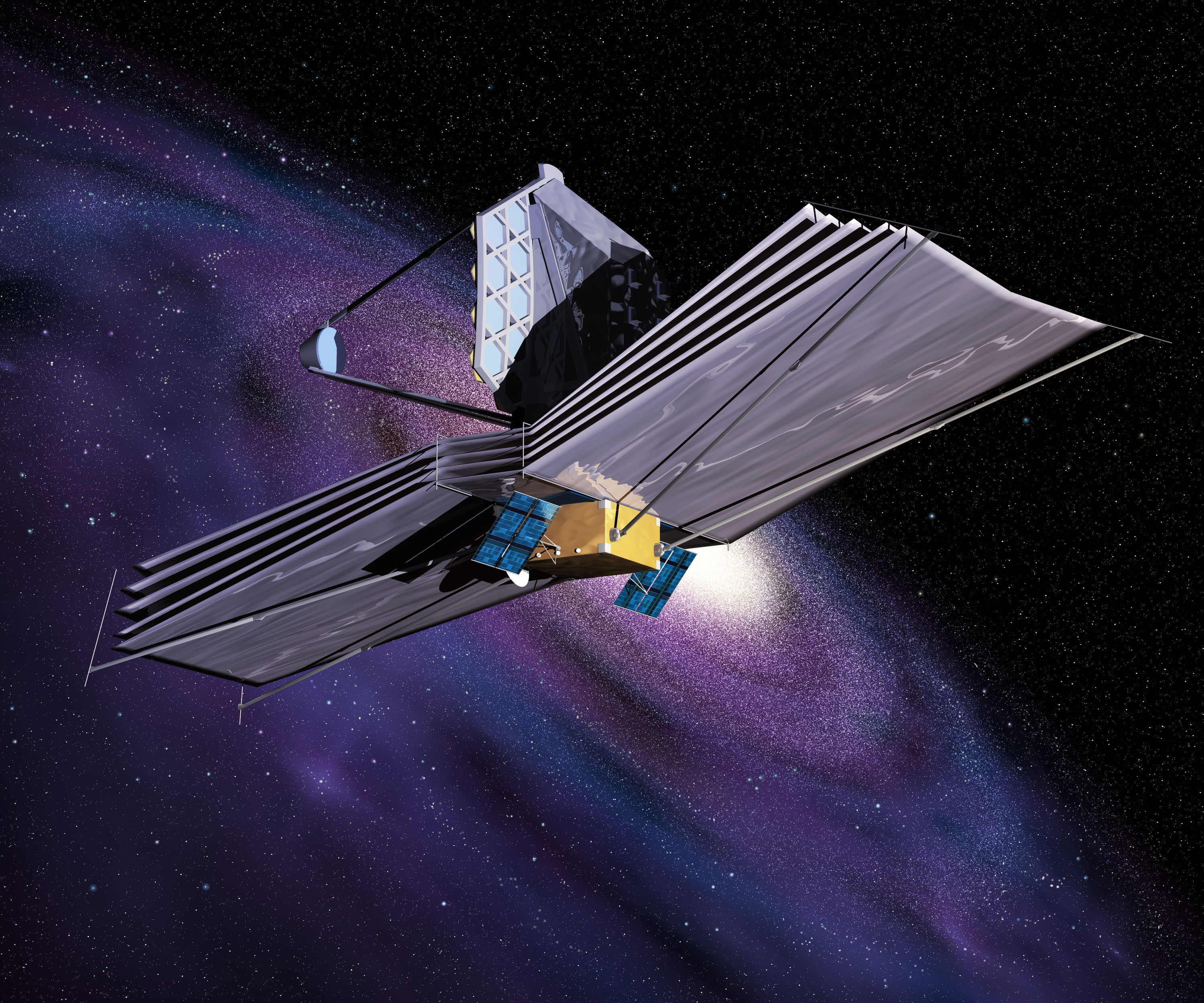[/caption]
On November 14, President Obama signed an Appropriations bill that solidified NASA’s budget for fiscal year 2012. The space agency will get $17.8 billion. That’s $648 million less than last year’s funding and $924 million below what the President had asked for. But it’s still better than the $16.8 billion proposed earlier this year by the House of Representatives.
To most people, $17.8 billion is a huge amount of money. And it absolutely is, but not when you’re NASA and have multiple programs and missions to fund. So where does it all go?
The bill highlights three major items when it comes to NASA’s budget. Of its total funding, $3.8 billion is set aside for Space Exploration. This includes research and development of the the Orion Multi-Purpose Crew Vehicle and Space Launch System, hopefully keeping both programs on schedule.

$4.2 billion has been allocated for Space Operations. This includes funds to tie up the loose ends of the Space Shuttle program, the end of which is expected to save more than $1 billion. The Space Operations budget, however, is $1.3 billion below last year’s level.
Coming to a very popular topic, the bill dedicates $5.1 billion to NASA Science Programs, a division that includes the James Webb Space Telescope. The JWST has garnered much attention this year, usually for being badly behind schedule and cripplingly over budget. Of the funding dedicated to Science Programs, $530 million is directed to the JWST project.
There’s a little problem hidden in this item in the bill. The $5.1 billion is just over the $150 million funding the Science Programs got last year. With $380 million on top of that increased promised to the JWST, where’s the money coming from? Other programs. As the bill says, “the agreement accommodates cost growth in the James Webb Space Telescope (JWST) by making commensurate reductions in other programs.” NASA will get the money for the telescope the only place it can – by cutting other programs.
This means potential major cuts to planetary programs since NASA’s manned program traditionally gets the most money. And understandably so. Aside from the real space enthusiasts who track robotic missions with gusto, an astronaut provides a great human link to space for the everyman. So even without an active manned program, it’s highly unlikely NASA will find the funds for the JWST program in its manned budget.
Planetary missions will likely take the hit. And a funding cut now could seriously affect NASA’s long range plans, such as its planned missions to Mars through 2020. Prospective missions to Europa will face difficulties too, a real shame since liquid water was recently discovered under the icy surface of that Jovian moon.
Unfortunately, NASA’s budget just can’t match its goals. For the near future, NASA will have to do what it can with what it’s got. As NASA Administrator Charles Bolden said in reference to the budget the House of Representatives originally proposed in February, it “requires us to live within our means so we can invest in our future.” Let’s all hope for some wise investing on NASA’s part.
Sources: “Summary: Fiscal Year 2012 Appropriations “Mini-Bus”, “2012 Budget is Set” from the Planetary Society.


i just don’t understand why nasa won’t cooperate with the other great space agencies of the earth on a sending a probe to europa.
Perhaps because the US has trouble cooperating with any international partners anymore unless it entails military intrusion…..
Perhaps because the US has trouble cooperating with any international partners anymore unless it entails military intrusion…..
they’ve tried – but constant cuts force them to back out. And I suspect that old partners are more and more wary to collaborate because of that.
they’ve tried – but constant cuts force them to back out. And I suspect that old partners are more and more wary to collaborate because of that.
The Russians are having trouble launching anything and even their Phobos-Grunt budget was quite small by NASA standards. China has the world’s money now, which might be exactly why they’re doing their own thing and building a redundant space station.
And ESA is having such financial trouble that they’re looking to the Russians to launch their probes as part of some kind of barter agreement. Looking at things from Europe I think the US is doing a great job given what the economy looks like at the moment.
The Russians are having trouble launching anything and even their Phobos-Grunt budget was quite small by NASA standards. China has the world’s money now, which might be exactly why they’re doing their own thing and building a redundant space station.
And ESA is having such financial trouble that they’re looking to the Russians to launch their probes as part of some kind of barter agreement. Looking at things from Europe I think the US is doing a great job given what the economy looks like at the moment.
i just don’t understand why nasa won’t cooperate with the other great space agencies of the earth on a sending a probe to europa.
Part of these founds will return into the pockets of a few senators that have contracts with NASA for some Godknows what BS that will explode every 4 flights.
Part of these founds will return into the pockets of a few senators that have contracts with NASA for some Godknows what BS that will explode every 4 flights.
NASA is getting more money than it did when it actually flew humans to space.
Might I suggest that NASA is an over inflated bureaucracy whose purpose has become, employing 20,000 odd scientists and engineers, rather than actually, “pioneer(ing) the future in space exploration, scientific discovery and aeronautics research”, as it’s mission statement suggests.
It’s easy to be cynical. It’s probably quite a bit harder for you to explain how Dawn, Curiosity or MESSENGER fit into that picture. Or the Deep Space Network and Voyager combo. Or New Horizons. Or…well even though I’ve never studied what NASA does I know at least ten unequalled projects.
My native Europe on the other hand does have some missions, but they tend to travel incognito and all the mission websites I’ve seen have been terrible.
It’s easy to be cynical. It’s probably quite a bit harder for you to explain how Dawn, Curiosity or MESSENGER fit into that picture. Or the Deep Space Network and Voyager combo. Or New Horizons. Or…well even though I’ve never studied what NASA does I know at least ten unequalled projects.
My native Europe on the other hand does have some missions, but they tend to travel incognito and all the mission websites I’ve seen have been terrible.
NASA is getting more money than it did when it actually flew humans to space.
Might I suggest that NASA is an over inflated bureaucracy whose purpose has become, employing 20,000 odd scientists and engineers, rather than actually, “pioneer(ing) the future in space exploration, scientific discovery and aeronautics research”, as it’s mission statement suggests.
When are we going to stop funding wars and useless things. Politicians are ruining mankind. NASA should be getting much more than $17.8 Billion.
Great article Amy!
i think $17.8 billion would be fine if the politicians wouldn’t dictate how it is spent. Congress should just set vague direction that doesn’t even have to be complete sentences like “moon base” or “mars mission”
I’m wondering if NASA would even bother funding SLS if it had the choice.
A more interesting question is: Is there anyone on the SLS team that thinks it will fly any actual missions beyond LEO? If the answer is no, how can it ever be successful?
i think $17.8 billion would be fine if the politicians wouldn’t dictate how it is spent. Congress should just set vague direction that doesn’t even have to be complete sentences like “moon base” or “mars mission”
I’m wondering if NASA would even bother funding SLS if it had the choice.
A more interesting question is: Is there anyone on the SLS team that thinks it will fly any actual missions beyond LEO? If the answer is no, how can it ever be successful?
When are we going to stop funding wars and useless things. Politicians are ruining mankind. NASA should be getting much more than $17.8 Billion.
Great article Amy!
A minor correction: the appropriations bill was signed into law on November 18, not November 14.
Also, the “potential major cuts to planetary programs” is primarily an outyears concern, not one for FY2012. The planetary line item in the budget was cut by about $40 million from the original request of $1.54 billion, so those programs will not suffer any major immediate cuts. Cuts to planetary, astrophysics, and heliophysics programs are a concern in FY13 and beyond, though, to cover a portion of the additional costs of JWST.